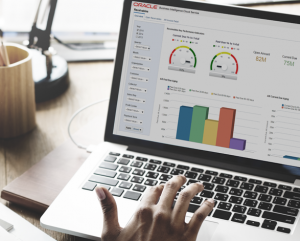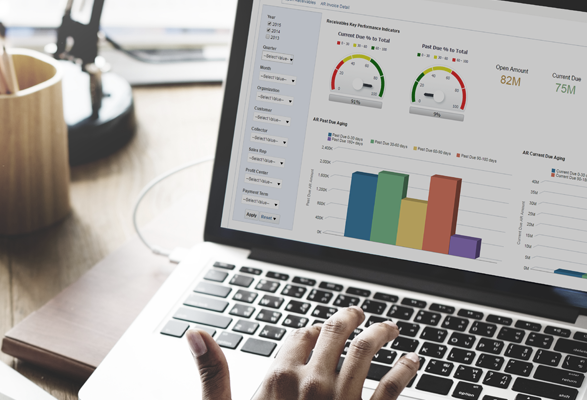If you missed our webinar, A Customer’s Take on Moving from Discoverer to Oracle Business Analytics, the on-demand recording is now available for immediate viewing. If you are currently using Discoverer, hear directly from a Perficient customer, Gary Aragon with Group Voyagers, who made the move from Discoverer to Oracle Business Intelligence Enterprise Edition (OBIEE) in just nine weeks!
During the webinar we asked a couple of polling questions about why companies have delayed moving off Discoverer and future plans. The majority of webinar attendees, 67%, cited the reason they have not moved off Discoverer is because it works. Although I can understand that perspective, Extended Support for Discoverer ended in June 2017. Companies that are still running Discoverer may find themselves in a bind in the near future as Oracle will no longer provide new patches. The Discoverer environment may be stable today, but new Windows updates could wreak havoc on Discoverer and Oracle won’t be there to fix such issues.
Guide to Oracle Cloud: 5 Steps to Ensure a Successful Move to the Cloud
Explore key considerations, integrating the cloud with legacy applications and challenges of current cloud implementations.
Another common reason customers may delay moving off Discoverer is that they have thousands of reports in their production environment. The length of time it would take to migrate all those reports is a valid concern. In my experience, I have learned that business users often make minor changes to a given report and save many different versions of the same report for a different time period or a different business unit. The various filter criteria available has led to multiple iterations essentially of the base report. As a rule of thumb, if a customer tells us they have thousands of reports they need to migrate, when we take a closer look at those reports and conduct a fit gap, we generally find we can condense that number to around 200 or fewer distinct reports that are actually needed. We can effectively recreate those 1,000 reports needed by applying different filters or selection criteria on top of the unique reports.
From a timing perspective, it could take months or a matter of weeks to migrate Discoverer reports if a customer already owns pre-built Oracle BI solutions, which provides a foundation we can use to migrate their Discoverer reports.
Customers often ask me how we can build real-time reports which business users have access to today in Discoverer on an Oracle BI platform. Often the Discoverer reports are built using materialized views directly on top of Oracle E-Business Suite (EBS) tables. Business users are accustom to real-time reports, so what we typically try to do when we move from Discoverer to Oracle BI is to apply data warehousing best practices. We are essentially going into Oracle E-Business Suite and pulling the data and transforming it and loading it into different star schemas. The benefit of that approach on the EBS side is that the BI platform does not tax your EBS platform because we’re pulling the data on a nightly basis. Granted, the data is essentially a day old, but what we try to do is understand from the business the justification behind the real-time need. We approach it one of many ways. One approach would be to build materialized views for just those key reports where there is a clear justification for real-time data and combine that with BI Applications data warehouse and data model. Another approach is where you have a real-time reporting need for a large number of reports. In this instance, a tool called Oracle GoldenGate which would be able to replicate two different instances might be advisable. There are a number of different architecture options that customers could consider.
If you are using Discoverer today and are exploring your options, you have choices. Some customers will opt to move to another on-premises solution. Others will look at a hybrid solution or make the move to the cloud. If you’re unclear as to what decision is right for your company, you’re not alone. Look to an implementation partner that has broad experience with OBIEE and Oracle BI Applications as well as Oracle BI Cloud Service (BICS) and Oracle GoldenGate.



